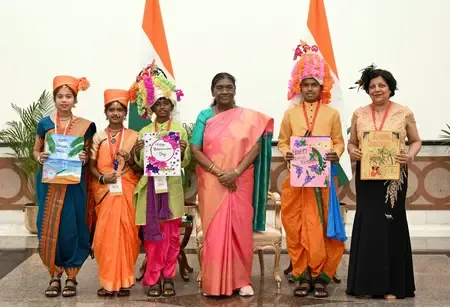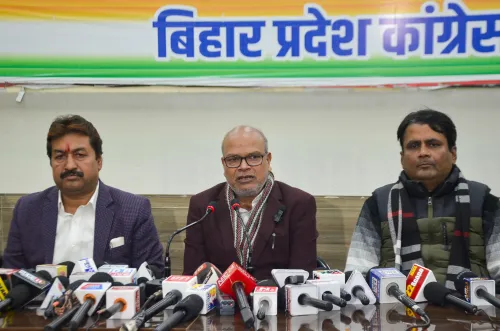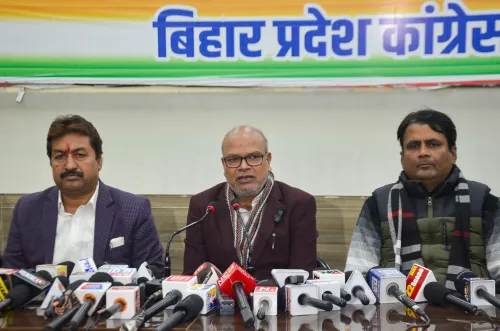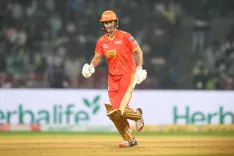How Did President Murmu Celebrate Raksha Bandhan with Children at Rashtrapati Bhavan?

Synopsis
Key Takeaways
- President Droupadi Murmu celebrated Raksha Bandhan with children at Rashtrapati Bhavan.
- The festival symbolizes the bond of protection between siblings.
- Raksha Bandhan is celebrated on the full moon day of Shravana.
- It has evolved to include various relationships beyond siblings.
- The festival reflects deep cultural values in Indian society.
New Delhi, Aug 9 (NationPress) President Droupadi Murmu celebrated Raksha Bandhan on Saturday with children and students from various schools and organizations at Rashtrapati Bhavan, radiating joy and warmth on this festive occasion.
On the social media platform X, the President’s office shared snapshots of the celebrations, stating, "President Droupadi Murmu celebrated Raksha Bandhan with children and students from various schools and organizations at Rashtrapati Bhavan."
In the touching images, President Murmu is depicted tying 'rakhis' on the wrists of schoolchildren, representing the bond of protection and affection traditionally exchanged between siblings.
Earlier in the day, the President offered her greetings to the nation, expressing, "On the auspicious occasion of Raksha Bandhan, I extend my warm greetings and best wishes to all fellow citizens residing in India and abroad."
Meanwhile, Prime Minister Narendra Modi observed the occasion at his official residence at 7, Lok Kalyan Marg in the national capital. The celebration was filled with vibrant moments as children and members of the Brahma Kumaris tied 'rakhis' on the Prime Minister’s wrist and presented sweets.
In images shared by the PMO, PM Modi is seen joyfully interacting with children—shaking hands, exchanging smiles, receiving hugs, and even being affectionately kissed on the cheek. The Prime Minister reciprocated their affection with blessings and warm gestures, creating an unforgettable atmosphere.
Raksha Bandhan, celebrated on the full moon day of the Hindu month of Shravana, is a festival that honors the sacred bond between siblings. Traditionally, sisters tie colorful 'rakhis' on their brothers’ wrists, praying for their well-being and prosperity. In turn, brothers vow to protect their sisters and shower them with gifts.
Beyond its traditional roots, Raksha Bandhan has evolved into a celebration of love across all types of relationships—including those between cousins, in-laws, and even spiritual leaders and their followers. The term "Raksha Bandhan" translates from Sanskrit as "the bond of protection," symbolizing love, duty, and mutual respect.
This vibrant festival, also celebrated in countries like Nepal, continues to embody the deep-seated cultural values of unity, care, and familial love within Indian society.










